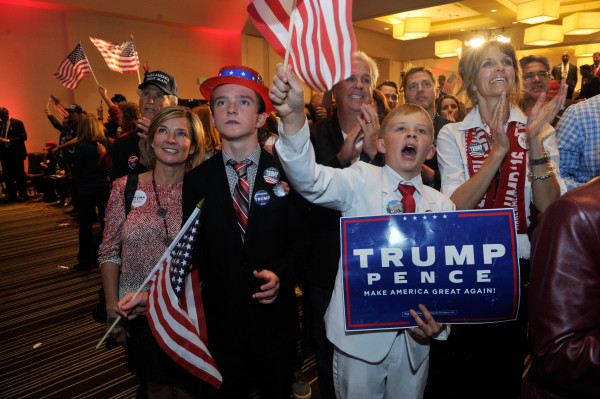
Article 4 / 9
2016 Review - A year to remember for investorsNext year could be pivotal for US economy

If investors were caught off guard by the UK’s vote to leave the EU, then many were even more stunned when Donald Trump was elected the 45th president of the US following an election campaign that was marred by some extremely divisive rhetoric.
The election of the businessman and real estate magnate appears to mark a new era for US politics.
Mr Trump’s repeated promises to remove Janet Yellen from her post as chair of the Federal Reserve and his toing and froing on issues such as healthcare illustrate that there are a lot of unknowns about what his leadership could entail.
But given the US election did not take place until November 8, plenty else has occurred in markets throughout the rest of the year.
Rob Morgan, pensions and investments analyst at Charles Stanley Direct, notes: “With the US economy performing well, the Dow Jones, S&P 500 and Nasdaq [indices] all hit new highs this year, providing UK investors with exceptional returns. Local market gains were given a currency-related boost from a weak sterling and investors with heavy US exposure will have done well in the aftermath of the Brexit vote, in particular.
“The fly in the ointment of US economic strength is the possibility of the Federal Reserve taking a more aggressive path on interest rates, which is likely to be a headwind for the more defensive sectors that have grown expensive on low bond yields.”
At the start of this year the US central bank had been expected to continue raising interest rates with some regularity, but the “data dependent” Fed was held back.
David Lafferty, chief market strategist at Natixis Global Asset Management, says: “Pricing in as many as four potential rate hikes in 2016, economic activity in the first half failed to recover and the Fed was forced to downshift expectations.
“Equity investors saw a chance to have it both ways: growth that was likely to improve later in the year with a central bank still on the sidelines. Equities moved up largely on P/E [price-to-earnings] expansion as earnings have yet to materially improve.
“Through the US election [campaign], bonds of all stripes performed well as rates fell, particularly those in the corporate credit-related sectors. Since the election, inflation fears have pushed yields higher, giving back most of those bond gains.”
Indeed, markets began to rally in the days before voting took place in the US, indicating what many thought would be a secure victory by Democrat Hillary Clinton.
When it emerged that the Republican candidate would be entering the White House in January, stockmarkets initially reacted by falling. Yet the decline was nowhere near as sharp or prolonged as some thought it would be.
Randy Frederick, managing director of trading and derivatives at Charles Schwab, suspects the swift recovery in markets on November 9 signalled a belief among investors that many of Mr Trump’s more extreme election pledges would not come to fruition.
The industry-heavy Dow Jones Industrial Average index climbed to 18,769.5 by midday a couple of days after the election, up 0.9 per cent, as financial stocks rose on the back of Mr Trump’s promises to cut taxes and ease the regulatory burden.
But other indices, such as the blue-chip S&P 500, were trading flatter as technology companies including Google and Amazon took a hit after the election result.
Mr Morgan adds that the US election result prompted a “sharp acceleration” in the equity market rotation from defensives to cyclicals.
“In our view, the positive response of US assets to Mr Trump as president-elect reflects hope of big tax cuts, infrastructure spending and deregulation that will boost US growth more than inflation,” says David Riley, head of credit strategy at BlueBay Asset Management.
“However, emerging market investors fear a ‘bad Trump’ agenda of protectionism and a reversal of globalisation. The reality in our opinion is that both markets have overreacted: there’s huge uncertainty regarding [Mr] Trump’s policy priorities and implementation, even with a Republican congress.”
The election of such an unpredictable president has led many to fear for the future of the US.
Mr Lafferty says he often cautions investors against overreacting to geopolitical events, but admits 2017 will be pivotal for the US economy.
“We expect volatility to rise as a Trump presidency is unlikely to preserve the slow, but positive US growth economic trajectory,” he adds.
“Increasing fiscal spending and removing burdensome regulation could be the impetus for shaking the economy out of the doldrums. But this can only happen if [Mr] Trump doesn’t derail the economy with social unrest, trade wars or a more aggressive, inflation-induced Fed.”
But he warns: “In both the UK and the US, the emotion of populist victories will be tested by implementation difficulties. Economic missteps will be punished harshly as central banks can offer little protection.”
Ellie Duncan is deputy features editor at Investment Adviser






